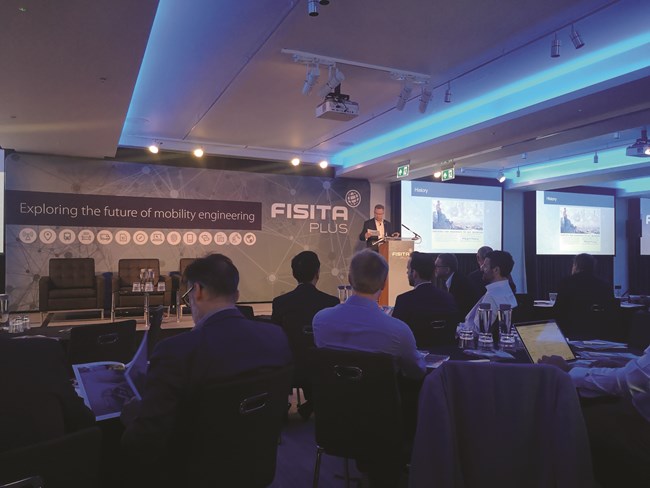
The start point for the best source of fleet information |
Quicker transition to electric needed for air quality goals
Date: 01 August 2019 | Author: Rachel Boagey

The rate at which older combustion cars are removed from the world's roads isn't something that is going to accelerate overnight, said a group of automotive engineers at a recent Fisita conference in London.
The conference, entitled 'Exploring the future of mobility engineering', saw big names from the global automotive engineering world come together to discuss the future of electric vehicles (EVs), and how the future fuel mix is likely to take years to become less polluting.
Paul Mascarenas, chairman of the Fisita UK board and a former senior Ford Europe engineer, explained that even if battery EVs were available in multiple model ranges and in free supply today, it would still take 10-15 years to substantially replace the world's fleet of combustion-engined cars with cleaner alternatives.
"I think the time it will take to change has been grossly underestimated as if today we only sold EVs it would take a long time for the internal combustion cars to trickle out."
"Currently, the time to change over the fleet, to get to one or 1.5 billion alternative-fuel vehicles in service globally by 2040, is completely undetermined," he said.
Dr Jo Dally, strategic city partnership lead at BP Advanced Mobility, explained that the move to electric needs to happen quicker, but to innovate in the EV space, no single party is going to be able to go it alone.
"We all need to figure out how to get consumers to understand the benefits of EVs and also get them familiar with the technology," she said.
When it comes to ultra-fast charging, Dally said that companies could put chargers in, but before this happens they will need to secure power from the grid.
"We will need to work alongside them and also work with manufacturers producing cars that can take the charge before this revolution really goes ahead," she said. "The technology is there; now it is making sure everyone is working together in parallel on that technology. The ecosystem really needs to come together."
As well as this, experts at the conference agreed that the future of powertrains is not going to strictly fall on one single solution.
Timothy D'Herde, general manager of the powertrain division at Toyota Motor Europe, told the audience: "We believe in diversified electrification and we don't think there will be just one solution. Fuel is very important right now and we need to look at full life cycle initiatives from well to wheel. More than 50% of cars are hybrid or hybrid electric in Europe right now, but this isn't the same in other markets. Not one solution will prevail, it will be diverse and will be different region by region."
Fisita chief executive Chris Mason described the switchover to electric as a "significant challenge", but believes it will be substantially pushed by "societal acceptance and demand" rather than "leveraged" by politicians.
"Ultimately, the speed at which we can changeover the fleet is the constraint on cleaning up air and I think we need a forcing function for us as an industry to work around," Mascarenas said.










